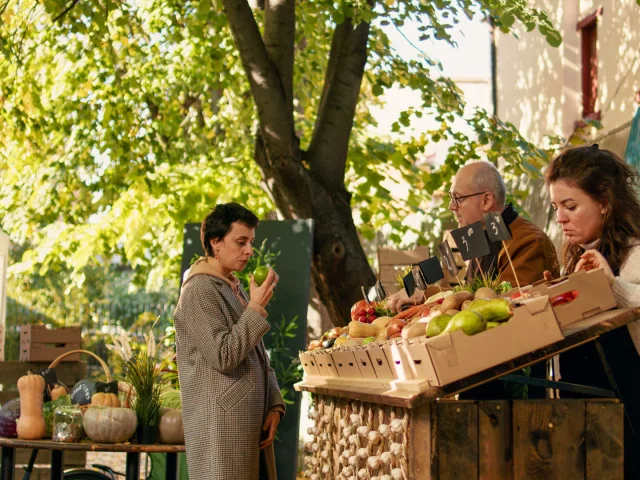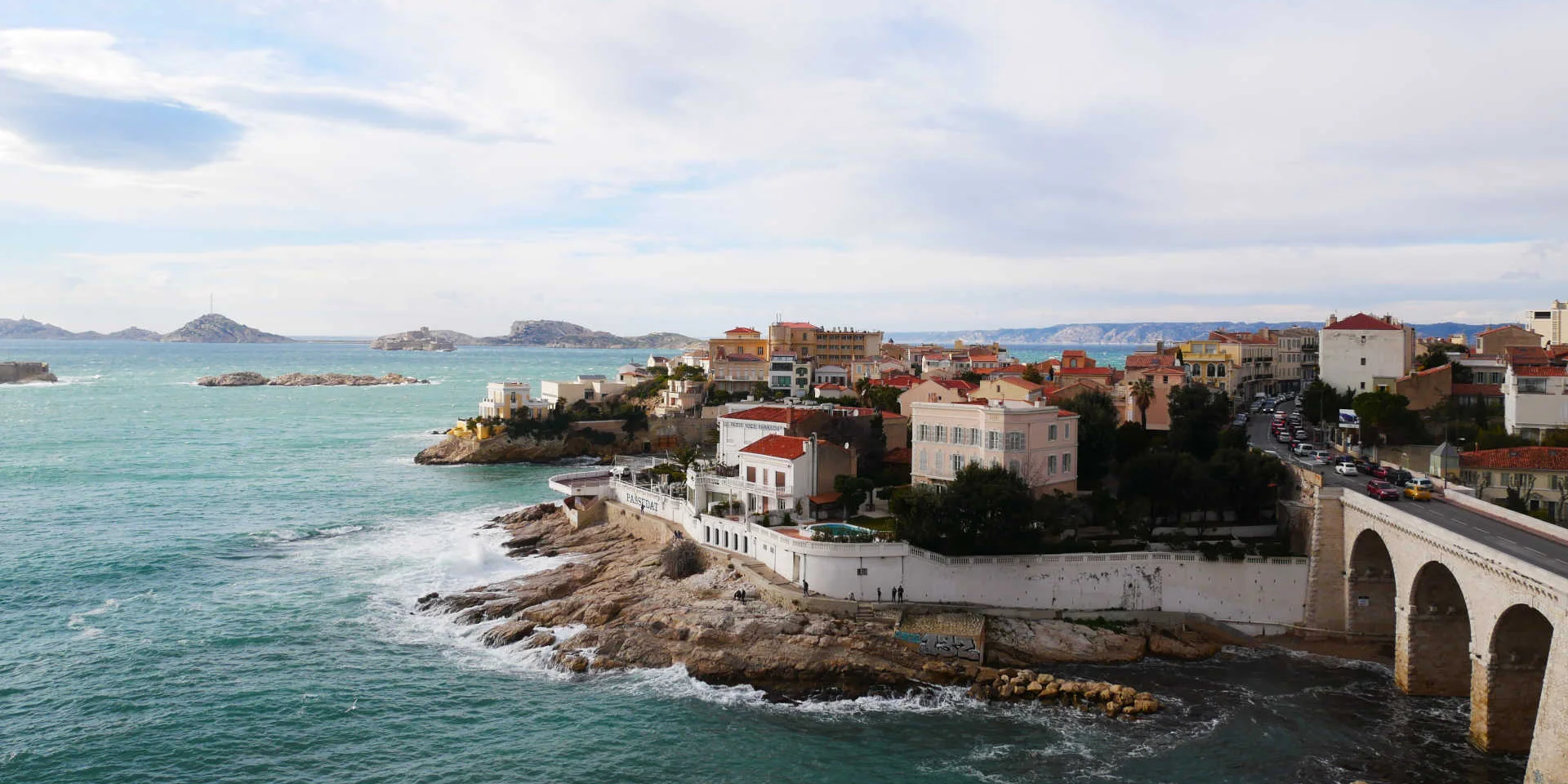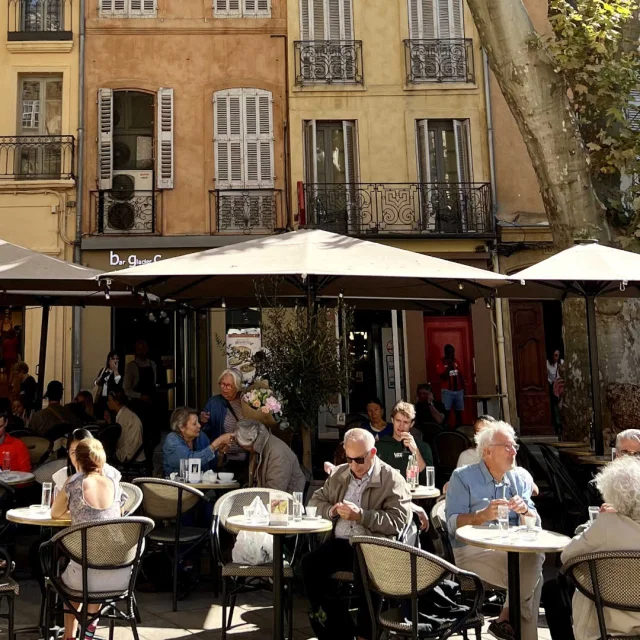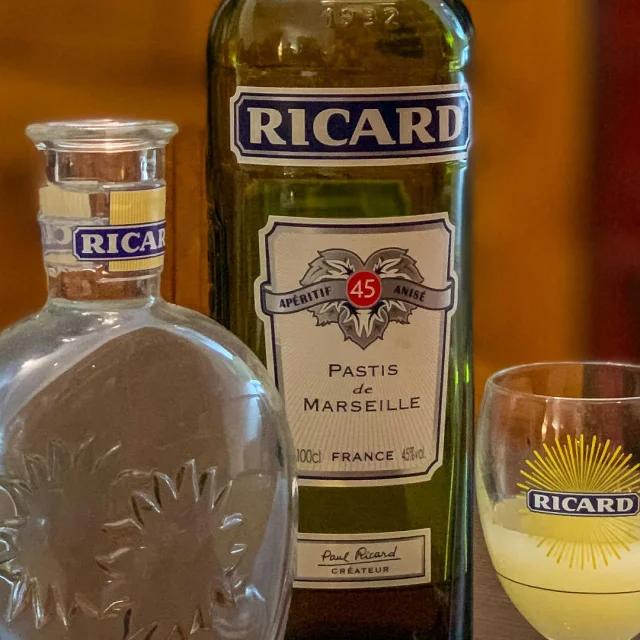“T’as compris ou t’as pas compris?” (Got it or not?)
Keep your ears open during your stay in Provence-Alpes-Côte d’Azur. As you stroll between the stalls of our Provencal markets, for example in the pretty village of Cavaillon, you may well hear a seller claiming that a Michelin-starred chef once said he sold the world’s best melons, to which a customer responds, “arrête de faire le mariolle et de m’emboucaner” (stop being a clown and trying to con me). Or, as you settle down on a sunny terrace in Haute Provence at aperitif time – for example in the village of Forcalquier – you might catch the bartender saying that one of the patrons should “y aller mollo sur le flaï s’il veut pas finir complètement empégué” (go easy on the booze if he doesn’t want to end up sloshed), to which one of the other regulars mutters “il a du pastaga plein son cafoutche” (he’s got plenty of Pastis stashed away in his cupboards). As you tuck into a delicious slice of Tarte Tropézienne in Saint-Tropez, don’t be surprised if you hear a mother who has just offered the same treat to her “gâté” (little darling) exclaiming: “Boudiou mais ça pègue ce truc! Le pitchoun en a partout, peuchère” (“Dear God this thing is sticky! The kid is covered in it poor mite”).
 Market stalls in Provence
Market stalls in ProvenceAs you head up the Corniche Kennedy coast road in Marseille, you may come across an unlucky (catané) fisherman muttering, “Oh fatche de con, c’est pas possible une scoumoune pareille!” (Heck, how can anyone be so cursed!). And as you arrive at Maldormé cove, you’d be well entitled to exclaim, “Franchement, c’est dégaine comme endroit. Surtout s’il y a dégun vous serez tarpin bien!” (This place is frankly amazing and it must be really great when nobody’s here!). Pay attention if a neighbouring bather calls to you with the words “Vé le fada, il va faire un plat ce jobastre!” (Look at that lunatic, the idiot is about to do a belly flop and drown!), pointing to a young poser getting ready to jump off the rocks. Meanwhile, if a parent at the end of their tether with their boisterous infant raises their eyes to heaven and says, “Bonne Mère mais quel boucan ce minot, on dirait son papé.” You’ll know they mean “For heaven’s sake this kid is such a handful, he’s just like his grandfather”. And if you happen to be roaming around Marseille in early January, join in the fun by wishing everyone a “bon bout d’an”, aka Happy New Year!


